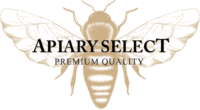In the Blue Ridge Mountains of Washington County, Virginia, lies Apiary Select, a honey producer with a big mission: to produce the finest raw honey through sustainable beekeeping practices. This journey from flower to jar is not just about creating a natural product, but about maintaining the delicate balance of our ecosystem and supporting the health and well-being of our bees. In this post, we’ll explore the meticulous process of sustainable beekeeping and how it leads to the superior quality of our honey.
The Importance of Sustainable Beekeeping
Sustainable beekeeping is more than a method; it’s a philosophy that respects the natural behavior of bees and their role in our environment. Unlike conventional beekeeping, which often prioritizes quantity over quality, sustainable practices ensure that bees are healthy, ecosystems flourish, and the honey produced is of the highest purity and taste.
At Apiary Select, we adhere to these principles by ensuring our bees have a diverse range of flowers and plants to pollinate, avoiding the use of harmful pesticides, and never overharvesting honey, leaving enough for the bees to thrive during the winter months. [Why Protecting Pollinators Matters: The Crucial Role of Bees in Our Ecosystem]
From Flower to Honeycomb
The journey begins when the dandelions and clover in the fields surrounding our bees start to bloom, providing a rich source of nectar and pollen. We work harmoniously with the bees, monitoring their health and ensuring they have everything they need to produce their liquid gold.
The bees collect nectar and return to the hive, where they pass it on to other worker bees who begin the process of converting it into honey. This involves adding enzymes and reducing the moisture content, a natural process that we monitor but do not interfere with, ensuring the honey retains the natural flavors of the meadows and forests that surround our apiary.
Harvesting with Care
When it comes to harvesting, our approach is gentle and respectful. We only take what the bees can spare, and make sure we provide nutritional support to keep them healthy as we benefit from their hard work. We are intentional with our movements and actions in the hive to minimize disturbance to the bees.
Once removed, the honeycombs are taken to our on-site processing facility, where the honey is extracted, strained, and bottled, all while keeping temperatures low to preserve the honey’s natural enzymes and nutrients.
The End Result: Pure, Sustainable Honey
The result of this careful, considerate process is Apiary Select’s raw honey, a product that is as beneficial to our customers as it is to the environment. Each jar is a testament to the hard work of our bees and the dedication of our beekeepers.
Our honey is not just a sweetener; it’s a connection to nature and a contribution to a more sustainable world. By choosing Apiary Select, you’re supporting ethical beekeeping practices, local agriculture, and the preservation of our precious pollinators. [Supporting Local Agriculture: How Choosing Local Honey Benefits Your Community]
A Taste of Nature
We invite you to taste the difference that sustainable beekeeping makes. Whether drizzled over your morning yogurt, stirred into a warm cup of tea, or enjoyed straight from the spoon, Apiary Select’s honey brings the natural sweetness and rich flavors of Washington County’s flowers right to your table.
Discover the variety of flavors and benefits that our honey offers by exploring our collection. From the floral notes to the deep, rich tones, there’s a taste of nature’s bounty in every jar.
The Journey Ends at Your Table
The journey from flower to jar is a reflection of our commitment to sustainability, quality, and the well-being of the environment. By choosing Apiary Select, you’re not just enjoying delicious honey; you’re part of a larger movement towards a more sustainable and mindful way of living. Join us in this sweet, rewarding journey.
Thank you for supporting sustainable beekeeping and local agriculture. Together, we can make a difference, one bee – and one honey jar – at a time.
